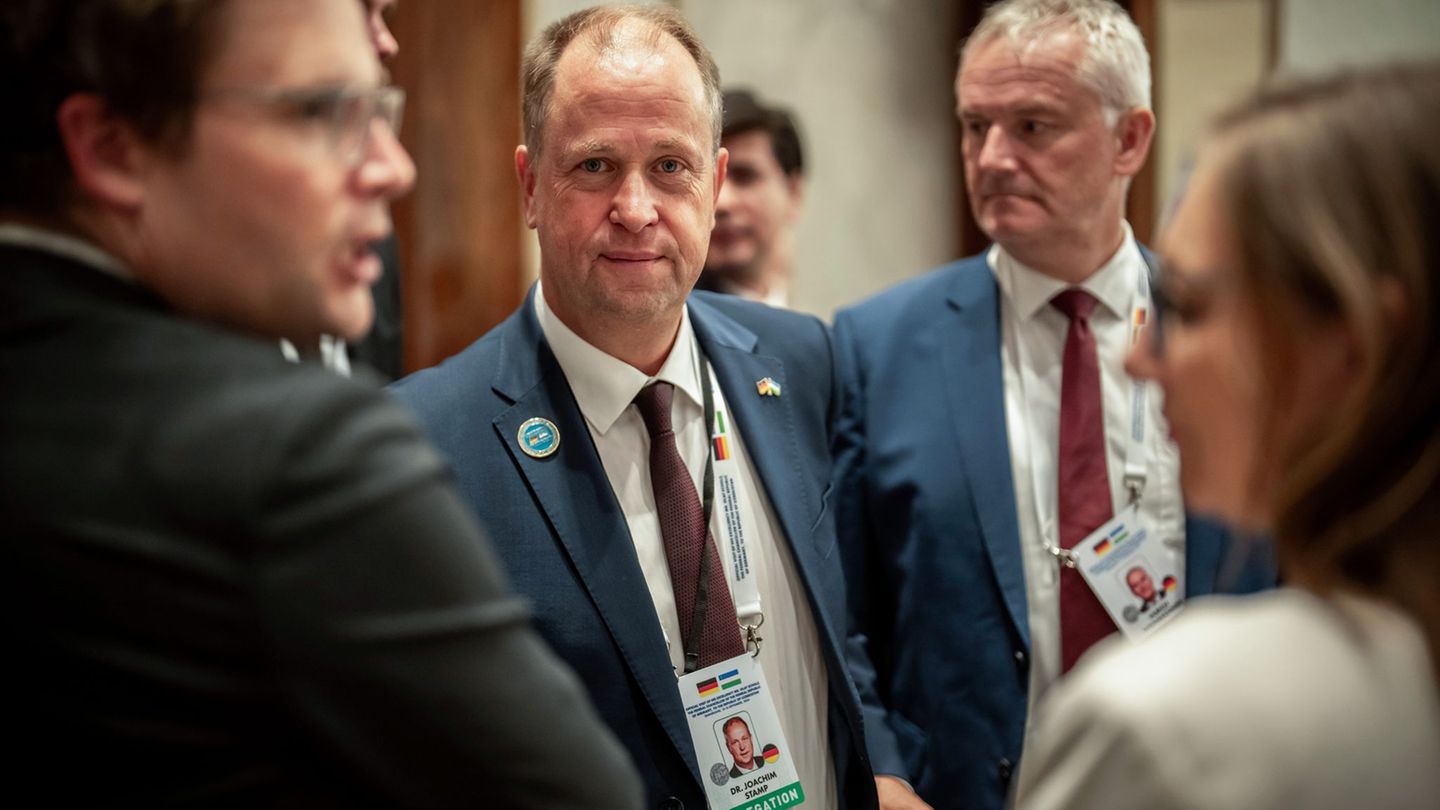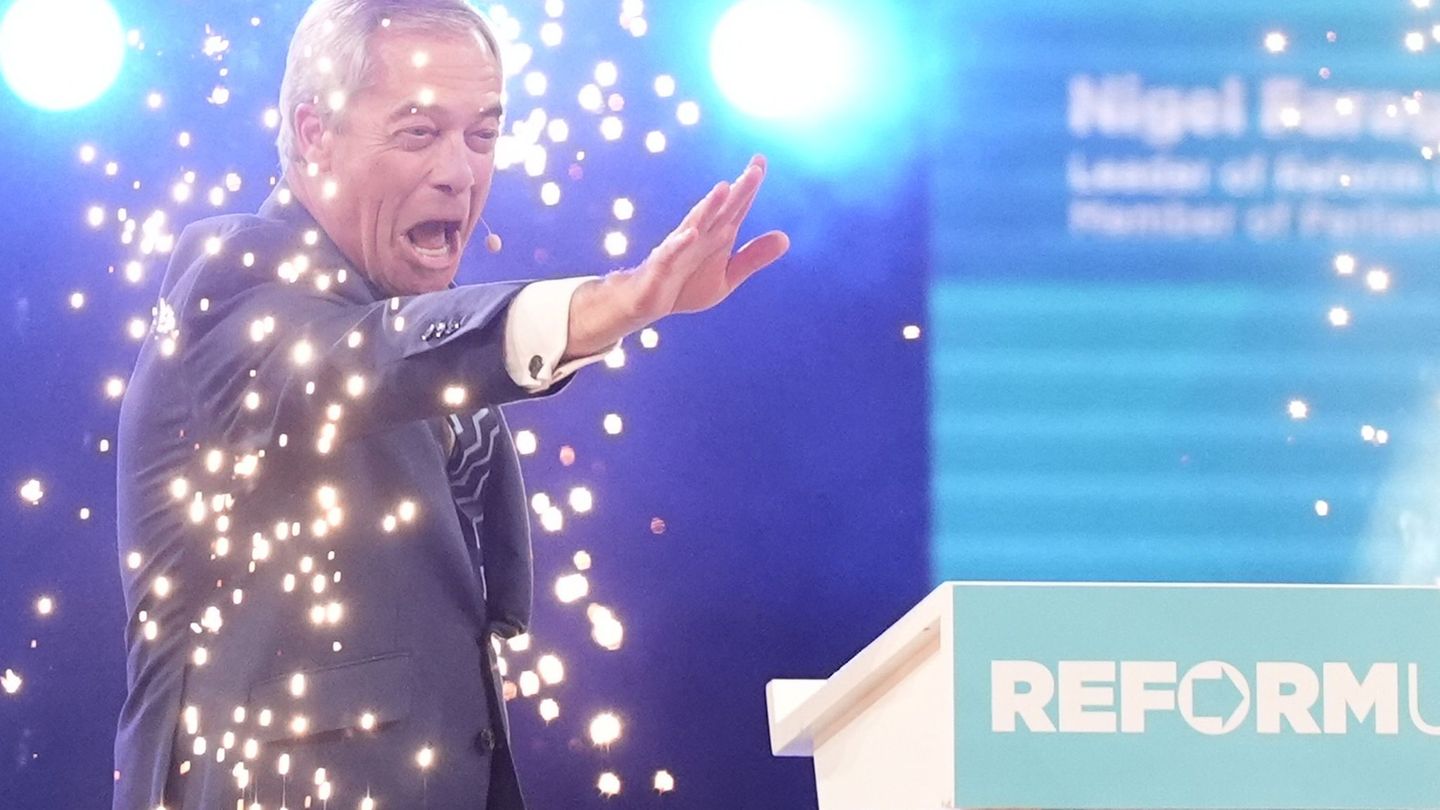The situation in Bosnia is described as an unfinished peace. Instead of violence there is mutual blockade. This makes the ethnically mixed country vulnerable to destabilization.
Defense Minister Boris Pistorius wants to continue Germany’s involvement in Bosnia-Herzegovina. “We want to support Bosnia and Herzegovina to the best of our ability and prevent Russia from misusing another hot spot, another potentially destabilizing area, in order to expand its influence in the assumption or in the hope of being able to destabilize the West in any way,” said the SPD politician met with his counterpart Zukan Helez on Tuesday in the Bosnian capital Sarajevo. Pistorius encouraged Bosnia to make further reform efforts on the way to the EU and NATO.
Pistorius clearly rejected the secession rhetoric of leading representatives of the Bosnian Serb Republic (“Republika Srpska”) by saying that one cannot dance at two weddings. Germany perceives the tensions in the Balkans with some concern. The entire Western Balkans is of great importance for security and stability in Europe.
Helez said Bosnia-Herzegovina would never accept such a secession but felt the destabilization. He said, “These are dreams that will never come true.” When asked, he also made it clear that ultimately NATO would have to guarantee the stability of the country.
Further program points on the Balkan trip
Pistorius traveled from Kosovo to speak to government officials and the representative of the international community, the German Christian Schmidt, in Sarajevo. He attended a Bosnian armed forces language school co-financed by Germany. On Wednesday he wanted to meet German soldiers from the EU mission Eufor Althea in the country.
The Bundeswehr has stationed around 30 men and women in Bosnia with the aim of contributing to stabilization. The soldiers of the Eufor Althea mission contribute to an information picture through patrols, contact with the population and institutions, and their own situation reports.
Eufor Althea’s stated mission is to support the Dayton Peace Agreement, which ended the Bosnian war in 1995. However, the country remains a possible source of conflict. Statements from Russia and attempts to exert influence have recently sparked concerns.
Steps backwards when coming to terms with the past
From the Council of Europe’s perspective, the lack of dealing with the past in the territory of the former Yugoslavia is also dangerous for the future of the region. The “remarkable step backwards” in the process of coming to terms with the issue goes hand in hand with negative trends in human rights and ultimately threatens the hard-fought peace, said the Council of Europe’s Human Rights Commissioner, Dunja Mijatović, in Strasbourg in November.
“Divisive and hateful narratives and actions have become a common political strategy, including in the context of elections, and are dangerously undermining efforts to prevent the recurrence of violence,” the Council of Europe said. Reconciliation efforts would be seriously hampered by increasing denial of war crimes and glorification of perpetrators.
Source: Stern
I have been working in the news industry for over 6 years, first as a reporter and now as an editor. I have covered politics extensively, and my work has appeared in major newspapers and online news outlets around the world. In addition to my writing, I also contribute regularly to 24 Hours World.




